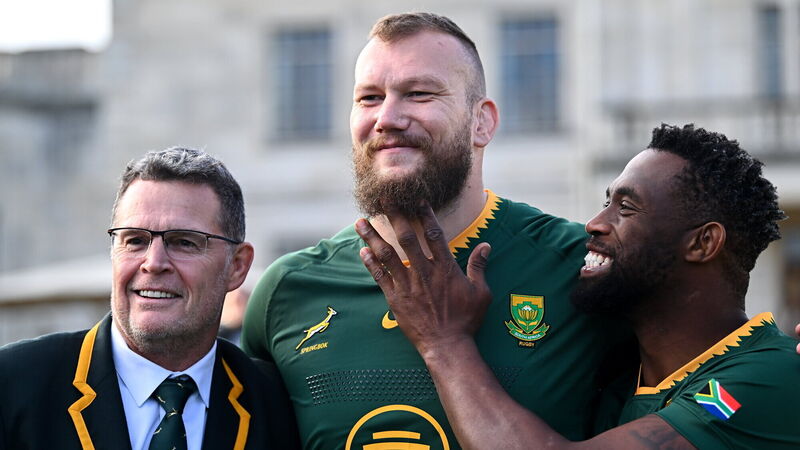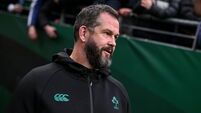Springboks’ poor Dublin record remains a pebble in their shoe

Head coach Rassie Erasmus, left, with RG Snyman and Siya Kolisi. Pic: Piaras Ó Mídheach/Sportsfile
The Springboks versus Ireland has become the prickliest rivalry in world rugby in recent years for several reasons.
Ireland are the only team to have a positive winning record against the world champions in the Rassie Erasmus-era, which dates back to 2018.












